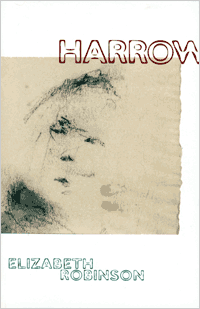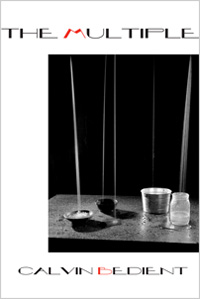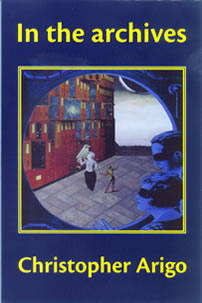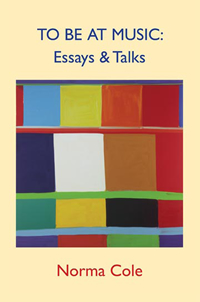Description
In Harrow, Elizabeth Robinson enters the crucible of faith found at every meeting of being with world and speaks: “The tongue is a fire, / a sign painter, incendiary paint. / A vocation. / In I go…” The vibrancy of these poems derives from the paradox that this poet expresses both the immanence of the spirit which infuses our daily lives, as well as its provisional, intractable nature. In Harrow, Robinson demonstrates that we exercise our aliveness when we reach into the essence of experience, attempting to grasp exactly that which our grasp cannot contain. “There is no image here / of inevitability, / this woman’s hair drifting / in the labyrinth.”
About the Author
Reviews
Excerpt
Elizabeth Robinson is on the creative writing faculty at the University of Colorado, Boulder. Her other books include In the Sequence of Falling Things, Bed of Lists, House Made of Silver, and Apostrophe. She won the National Poetry Series for Pure Descent, and was the winner of the Fence Modern Poets Series for Apprehend. She co-edits EtherDome Press, 26 Magazine, and Instance Press.
^ back to menu
By surrounding the sacred traditional with a transient periphery, Robinson leaves little room for a reader’s repose, urging, and in some instances prodding us, to reread and therefore reposition our relation to a challenging stasis. She writes, ‘poetry makes faith out of willed attention’ (35), and Harrow enacts this poignant ethic. An ethic crucial to a contemporary, viable poetry: a theological praxis, which can engage our turbulent world and its ceaseless bids for our attention. Harrow carefully avoids the acrid irony usually associated with religious skepticism and instead beautifully articulates potent oppositional gestures towards our present religious culture.
Harrow sketches in airy and compelling language the threshold of transcendence, the place where one leaves pattern behind to become something willed by the self. This tension between determining patterns and individual action is picked up in the opening lines of “Plaid” as Robinson writes, “To engineer traffic / is to move in one’s sleep.” Robinson eschews such unconscious action as represented by “sleep.” These patterns stand in for and regulate bodies, creating appearances without substance.
In Elizabeth Robinson’s new book Harrow, an exploration of the concept of faith in god(s) and goddesses plays out in carefully spun language that constantly gives one a sense of the divine hovering just beyond the page. In its compact, musical intensity, it reminds one at times of the feverish magical invocation H.D. produced in her war-time masterpiece Trilogy, although the aims of this book seem more speculative than ethereal, the emotional impact more subtle.
Robinson’s new collection of poems from Omnidawn Press, Harrow, invokes the intersection of faith, will and poetics, with the body and the self a backdrop to or central part of that intersection. But rather than simply destabilizing prescribed notions of discourse and worship, as the work of any good heretic does, Robinson’s spare, precise, and capacious poetry leads us continually toward the possibility inherent in how faith and meaning interact with language.
Happenstance: Landscape
i.
Perfect arch
that tugs air and
ground into each other’s mouth.
No need to breathe now. A memory
of that great river trained through the awning.
No permission for memory
but doubt and confidence
loiter. Two winged creatures
make a spiral over the dead lawn.
Years later
grief can be molded
into a waxy figure, not enormous,
but able to bear weight.
A green hill, huge, I imagined
never existed. Its arts overtook me
then I overturned it. Exotic boat.
I could. Who could hold something in
hand, torturing space.
ii.
You see the sails. I want you
to see the masonry. Removed
geography makes these hived
arches watertight. You see
how precisely you will become
my equivalent.
Nothing decorative can remain,
but still the pleasure, the singing, even
flawed sounds. Boom and clatter.
Something warm surges
around my shins. Then, the ground rubbed
hard would yield. Brazen.
I would not yield.
Debt’s tide
a seeming finality—the crown.




